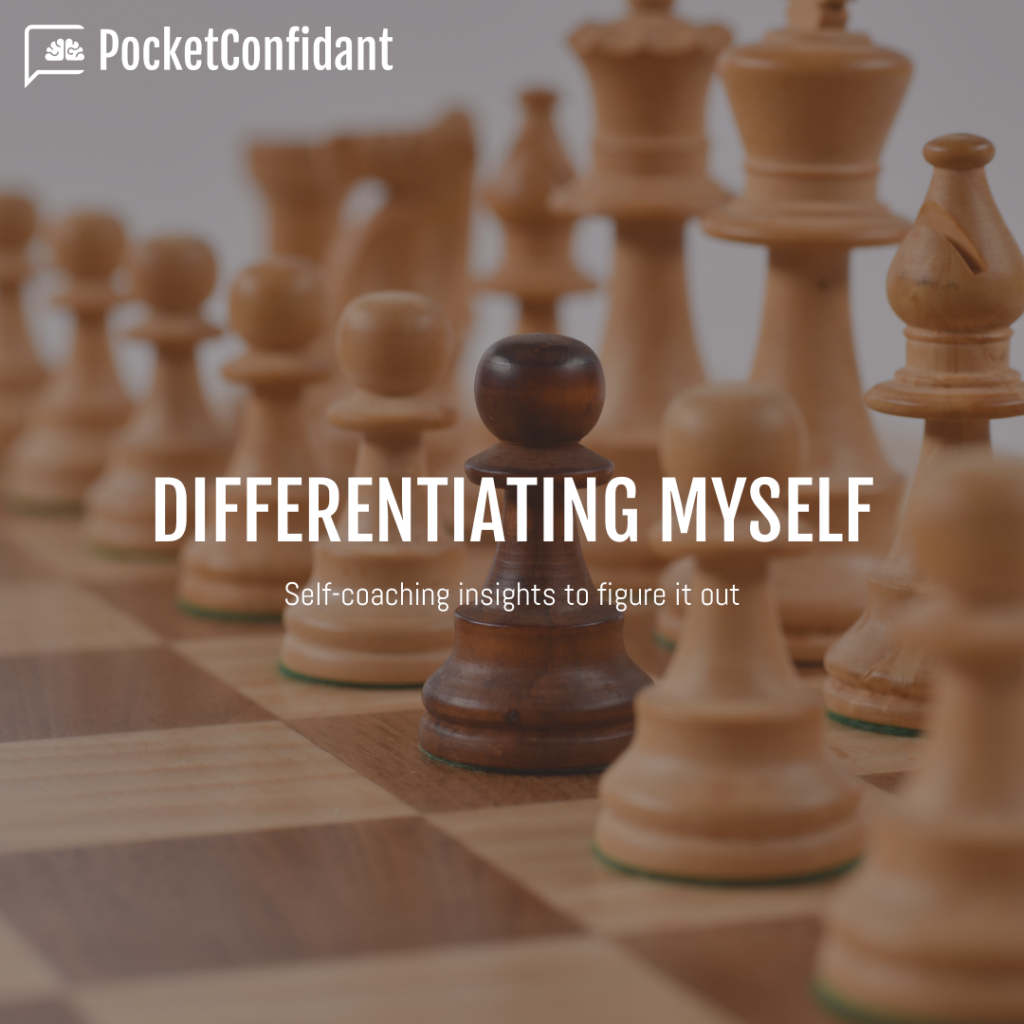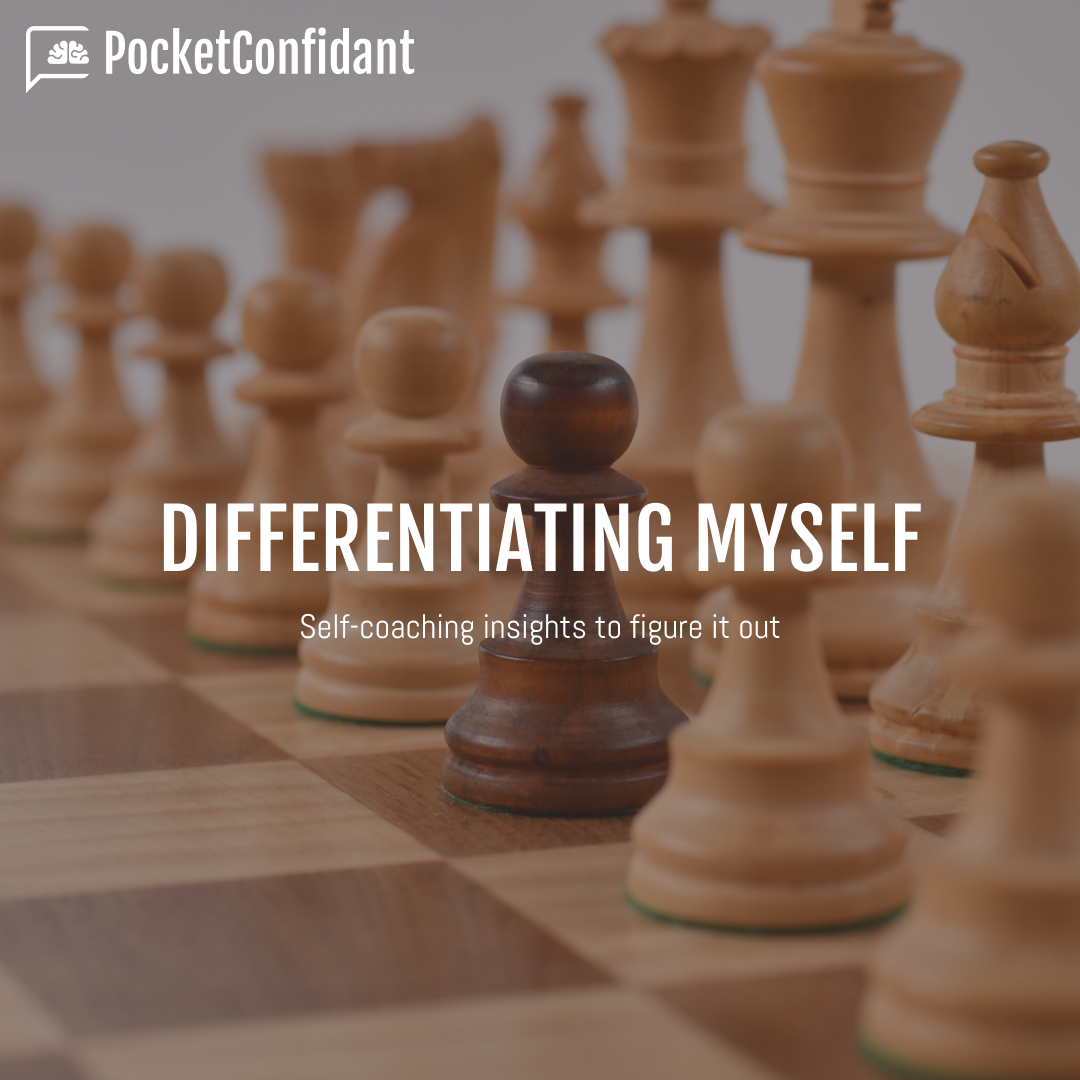
How can I differentiate myself from others?
As students apply for internships as part of their university courses, or, having graduated apply for jobs, a question that is frequently asked: “how can I differentiate myself? How can I be sufficiently different from another candidate so that I am the one who will be picked?” Or, how can I tell my story in such a unique way that the employer or recruiter sees that I am a great match for the job that I believe is perfect for me?
This is a natural response to uncertainty but the very good news is that you are already so unique there is no one like you on the planet. Science tells us that there is a 1 in 400 trillion chance of you being born (4×10 to the power of 14)! So, when it comes to asking the question “how can I differentiate myself” please know that each of us has an amazing head start here. Just by being you, you are unique. No one has the same thoughts, life experience, way of learning and processing information, motivation, likes, dislikes, way of relating to the world, or others, as you do. Think of how siblings who grow up in the same home with the same parents are so very different. Just knowing how unique and special we are makes us feel more confident and less competitive.
Now, to a practical answer to that question. Here are some tips from experts in the career/job field to help you be actively working on your search. All are important. Focusing on these will give you confidence and practice in preparation for interviews, talking to possible recruiters and employers, researching opportunities, networking, writing, creating a persuasive presentation – this process will be valuable to your credibility and demonstrates your initiative and “soft skills”.
- Going beyond your major: your college major does not define the job you can look for, or limit you in any way. I majored in languages, European economics, and politics. I lived in London and ended up in a career in event management in the USA! We can agree that I could not have become a brain surgeon, but the training I had was suited to many careers, as I am sure yours is too. Several years later I established a new career as a coach in education, working with students and teachers at school and university level in the USA and Europe, and today I am building a technology to scale coaching to millions. We acquire competencies and knowledge and one of the most appreciated skills that we will be paid for is our ability to apply our learning to solve problems and create value across different domains in our work environment. This is the application of transferable skills. I suggest you look at YouTube for videos on how to think about and identify all the hard and soft skills you already have and how you could apply them to expand your job search. You can also use self-coaching technologies to challenge your thoughts on skills and capacities. Students using our technology suddenly identify competencies they have and were not thinking about! Being curious and permitting yourself to look into jobs that might be of interest in other fields will broaden the scope of opportunities and give you more ideas.
- Networking: A statistic says that approximately 80% of jobs are never advertised. Even if that number is high, there are certainly many jobs that go to candidates who have some sort of personal connection. Start with family members, friends, neighbors, coworkers, and professors to inquire about opportunities and get some leads. Join and attend professional organization meetings in your field. Ask, “Who do you know that would know about finding a job in (list your field of interest)?” Check that your LinkedIn profile is up to date. Connect with people who are doing work you are interested in. Tell them you are a student or a new graduate and ask for an informal information interview to learn more about what they do, what they like and don’t about their work, how they suggest you build your network. Another personal story; the daughter of a friend asked if I would talk to her about my work (an information interview). We met, chatted, I thought she was great, introduced her to a company I knew (I was not aware they were hiring but suggested she talk to them) and she got a job. This can happen, what is very important is that this new graduate was actively creating opportunities to increase her network and that will pay off.
- Alumni: Make connections with college alumni in the industry you want to work in. Ask for their insights and recommendations. They may know of job openings in the company they work in. If you are applying to a company that an alumnus is already working for, let them know and ask for their help.
- Your interests: If you are unsure what field you are interested in working in: start looking at job descriptions in fields that might interest you. Ask people you know if they have a contact in the industry that you could have an informal information interview with to learn more. In my experience, people are very generous with their time and willing to help. They may not have a job for you but will be willing to sit down and talk, tell you what they know, and answer your questions (be sure to have good questions to ask). Self-coach to develop your creative thinking and come up with ideas you never thought about before.
- Do market research: Once you have a job goal, research what the hiring companies are looking for. Find 10 job descriptions and highlight all of the keywords and phrases that are most commonly repeated. Then you can highlight those skills in your LinkedIn profile, resume, cover letter, and during your interview.
- Be proactive: When you apply for a job, don’t just wait to see what happens, follow up. Check they have received your resume, ask if there is more information you can provide. Apply for as many jobs as you can find at the same time and be methodical in following up. 10 at a time is recommended. Consider your job or internship search as a real job. Dedicate several hours a day to it, keep track of who you are contacting, project manage the search. Use tools that can help you to challenge yourself and always come up with proactive thinking.
- Communication tools: Excellent communication is mission-critical! The advice from experts is to use a computer and not a phone when writing. There are too many potentials for errors on a phone, the formatting can be a problem. There is a risk that the message to the employer or recruiter will be that you are just not interested enough to make the effort to communicate professionally. Another expert tip; type your important communications in Microsoft Word or Pages first, remove all typos, then copy and paste into your communications. Formal formatting and grammar are critical. I use Grammarly to check my work. Also, challenge your thoughts and ideas and way of communicating with provoking questions provided by useful technologies.
- Dress for success: With more and more happening online, likely, you will also have your interview online. Dress as you would if you were meeting the interviewer in person. Dress professionally, you will feel empowered and prepared. Here are the surprising statistics: Within the first seven seconds of meeting, people will have a solid impression of who you are. 55 percent of first impressions are made by what we see (visual). 38 percent is the way we hear your first words (vocal). 7 percent is the actual words you say. That means that 93 percent of someone’s opinion has nothing to do with what you say!
There are challenges today in the job market but there are many ways in which you can be active in your search, identify your unique talents, and increase your network to create opportunities for yourself. You may have other ideas and I welcome them here so that we can share with other students and graduates who are also looking for jobs. For more conversation or information contact me at hello@pocketconfidant.com
By Isla Reddin, Coach and Chief Learning Officer at PocketConfidant AI
